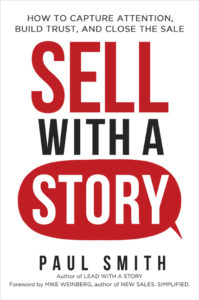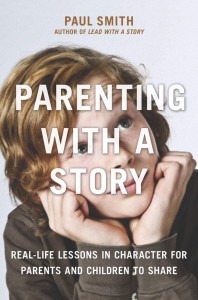Podcast: Play in new window | Download | Embed
Subscribe: RSS
Podcast (parenting-with-a-story-podcast-series): Play in new window | Download | Embed
Subscribe: RSS

For most people, especially young people, hearing one person demean another is a particularly juicy piece of gossip. It’s therefore one of the hardest to keep from sharing, especially from the person the insulting comments are about.
They sometimes justify it by telling themselves, “I’m just being a good friend by telling her. After all, I’d want to know if someone said something mean about me, wouldn’t I?”
Would you? Consider what happened to Mandy.
Mandy was a high school senior. She was bright and outgoing and had a tight group of friends. But her relationship with her mother was another story. The two fought constantly and disrespectfully, much more than the typical teenager and parent. So they’d been attending counseling together to help resolve their differences.
In one of their counseling sessions, Mandy surprised the counselor, and her mother, by sharing her most recent reason for being upset. Apparently, one of her mother’s best friends had spoken of her quite unkindly.
She said I was ‘fat and lazy,’” Mandy insisted.
Her mother responded quickly, “I’ve never heard her say anything like that about you. What makes you think that?”
Mandy was vague and evasive in her response, so the counselor asked her directly, “Mandy, who told you that?”
Mandy answered defensively, “I don’t have to tell you that. I don’t want to get anyone in trouble. Let’s just say that one of my friends over-heard her saying it at school in the drop-off line, and she told me.”
“Really?” her counselor asked, looking confused. “A friend of yours told you that?”
“Yes, of course. I have loyal friends. They look out for me.”
The counselor’s response was the last thing Mandy expected to hear.
It sounds to me,” the counselor offered, “like you need better friends.”
That took Mandy aback. She didn’t understand it. But she could also tell there was some wisdom in it that she just didn’t grasp yet. So she asked in a humble tone that suggested more genuine interest than the defensive retort one might have expected, “What do you mean, ‘better friends?’”
“Mandy, I’m not excusing what that woman said about you. It was unkind and uncalled for. But she didn’t hurt your feelings when she said it because she didn’t say it to you. Your feelings got hurt when your friend told you about it. A good friend would protect you from hurtful things like that, not bring them to your attention.”
Those words hung in the air as Mandy processed them. She’d never thought of it that way. Perhaps her friend had done her a disservice. And she’s certain she’s done the same thing on many occasions with her friends. She may not have made much progress in her relationship with her mother at that session. But she gained a whole new perspective on what friendship means.
As with all of these stories, I encourage you to share this with your kids, and then have a discussion about it. Here are some questions to get you started.
- Why do you think Mandy’s friend told her what that woman said about her?
- Before you heard this story, would you have told Mandy if you were her friend?
- Now that you’ve heard this story, would you change your mind? Why or why not?
- What kind of conversation might you want to have with the woman who called Mandy “fat and lazy”?
- If you agree that Mandy is fat and lazy, what kind of conversation, if any, might you want to have with her?
- How would knowing someone else called her “fat and lazy” help Mandy?
- How would you decide if it was a good idea to share something unpleasant like that with a friend? What kinds of things would you want to consider?
[The name and some details in this story have been altered to maintain anonymity.]
Source: Parenting with a Story: Real-life Lessons in Character for Parents and Children to Share, by Paul Smith.
 Paul Smith is one of the world’s leading experts on business storytelling. He’s a keynote speaker, storytelling coach, and bestselling author of the books Lead with a Story, Parenting with a Story, and Sell with a Story.
Paul Smith is one of the world’s leading experts on business storytelling. He’s a keynote speaker, storytelling coach, and bestselling author of the books Lead with a Story, Parenting with a Story, and Sell with a Story.


 Connect with him via email here.
Connect with him via email here.
Follow him on Facebook, LinkedIn, Twitter, and Instagram.
Sign up for his newsletter here to get one new story a week delivered to your inbox.

